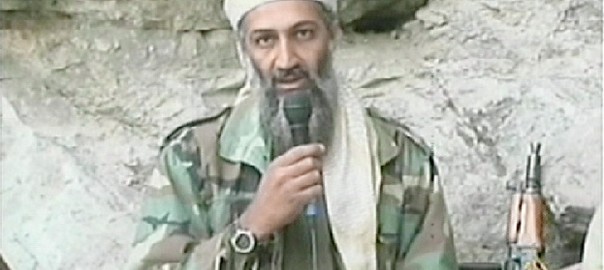Come ci si poteva aspettare la campagna mediatica per il Sesto Anniversario del Nine Eleven è puntualmente cominciata: un trailer di annuncio del video prossimo proprio con Osama starring (trailer che viene diffuso dai media occidentali per la consueta pubblicità); il video di 26 minuti e 27 secondi intitolato “The Solution” per il 7 settembre e, ancora oggi 11 settembre, un nuovo regalo di Osama, che ci partecipa il testamento di uno dei kamikaze al WTC: tal Abi Masa’ab Walid al Shahri.
Intervista con Mezgin, PKK – by Hamed N.
Intervista con Mezgin – PKK, Agosto 2007 – Kurdistan iracheno. Incontro la signora Mezgin rappresentante importante del PKK – Partîya Karkerén Kurdîstan , in italiano Partito dei Lavoratori del Kurdistan. Mezgin, 36enne, è una delle quattro persone collaboratori del segretario, inoltre rappresenta l’organizzazione femminile del partito. Quello che segue è un breve resoconto, in termini di battute e risposte, della nostra conversazione. HN – come è strutturato il nuovo PKK? M – il partito ha un segretario, quattro collaboratori e un’assemblea composta da trentuno persone. HN – che rapporti avete con lo stato turco?
ITSTIME collabora con la Protezione Civile della Regione Lombardia nell’ambito della esercitazione Valtellina 2007.
Attacchi a Londra, Glasgow e Marib – by Marco Lombardi
Londra, Glasgow, Marib: gli ultimi giorni di giugno e i primi di luglio 2007 sono resi drammatici e tragici da alcuni attacchi terroristici sventati, riusciti parzialmente e riusciti come previsto. Che cosa sta accadendo? ITSTIME – Italian Team for Security, Terroristic Issues & Managing Emergencies, che in Università Cattolica studia il terrorismo, propone una lettura che sembra confermare le analisi condotte in questi anni.
Palestinian Women Suicide Bombers – by Maria Alvanou
Palestinian Women Suicide Bombers: The Interplaying Effects of Islam, Nationalism and Honour Culture a new paper by Maria Alvanou, published for the Strategic Research and Policy Centre, National Defence College, IDF – Tel Aviv. In the context of wars and conflicts, women have tended to be classified within the single category “women and children”, as the “vulnerable” victims who suffer under violence with no means of defence. But women are not necessarily always vulnerable and on the contrary they have been actively engaging in many armed conflicts around the world, playing their own part in warring throughout history.
DOWNLOAD : Alvanou_Palestinian_Women
Surveillance people
Chiara Fonio (ITSTIME senior researcher) attended the Surveillance Summer Seminar hosted by the Surveillance Project at Queen’s University in Kingston, Ontario, Canada. The seminars were led by three faculty: David Lyon (Queen’s University , Canada ), Kevin Haggerty ( University of Alberta , Canada ) and Kirstie Ball (The Open University, UK ). The issue of surveillance was explored from a wide perspective through lectures, discussions, group sessions and film screenings. About 20 graduate students (PhD and MA candidates, but also Post Doctoral Fellows) of 9 different nationalities attended the excellent lectures and actively participated in the discussions. All the students were encouraged to write a 2 page research proposal and to share theoretical, methodological and ethical issues within their group. At the end of the week, each group (DNA, facilitated by David Lyon, RFID, facilitated by Kevin Haggerty and CCTV facilitated by Kirstie Ball) presented either collective goals or individual research projects. It was a stimulating, productive and intensive week. The seminars offered her the opportunity to meet (or reconnect) with excellent scholars who gave Chiara helpful suggestions, insights and feedback. Moreover, she met young scholars she would be more than happy to work with. Different academic backgrounds, along with the willingness to learn from each other, made the seminars a really unique experience. In particular, the week was filled with social networking with graduate students. Some of them are her area of study (CCTV) and they are planning an exclusively CCTV oriented conference for next year in London. Besides the event, during the seminar they discussed methodological issues and the proliferation of video surveillance in different countries (Canada, Mexico, UK and Italy). Overall, she was pleased with all the presentations, discussions and group activities. It was a privilege to work with surveillance studies scholars and she is hopeful for future collaboration
Left wing terrorist groups in European countries: a threat still alive – by Maria Alvanou
Fighting global terrorism is considered to be on the highest place in the agenda of the EU security decision makers and authority officials. European countries, especially after the Madrid and London attacks are struggling to prevent and thwart operations of this huge terror magnitude, sponsored by Al-Qaeda and its affiliates. Yet, it is not true that the security problem for EU countries emerges only from ‘outside inspiration’ and only from the Jihadi menace. In fact domestic, ‘traditional’ left wing terrorist groups do continue to pose a security threat.
Surveillance and identity: towards a new anthropology of the person
In the last decades surveillance and security tools, from cctv to ID cards, have grown to unpredictable levels. From close spaces, such as airports and malls, to urban contexts, our identities have become mere physical features constantly monitored by the penetrating eyes of security devices. The complexity, the nuances and the essential social components of identity are often reduced to ascribed characteristics. Identities have turned into “transparent” and naked bodies, legitimately scrutinised and divided into “pieces”. This simplistic approach could lead either to social exclusion of ethnic groups usually associated with deviant behaviour, or to a more general lack of concern for the integrity and the dignity of the person as a whole. The paper aims at analysing this new and inadequate anthropology of the person by focusing on different examples, such as biometrics and data banks, that emphasise the fragmentation of the body and the risks related to this reductive approach.
DOWNLOAD LINK : Surveillance and identity
Symbolisms of basic islamic imagery in jihadi propaganda – by Maria Alvanou
The proverb “one picture is worth a thousand words” summarizes the importance of image in the field of communication. The tragic events of September 11, the attacks on Madrid and London highlighted the importance of understanding the ideology and methods of jihadi groups. There is a lack of information on modern imagery associated with political Islam, especially imagery produced by radical and violent extreme Muslim groups. These organizations have had a brief but prolific history in the production and distribution of visual propaganda, and have arguably created their own distinct genre of Internet-based Islamic imagery. Visual propaganda is more than a host for textual messages; it is an expressive medium which communicates ideas just even more effectively than writing. Jihadi imagery is a primary vehicle for the communication and diffusion of jihadi ideas, an essential tool utilized by radical terrorist organizations. Therefore, understanding how these images work, what ideas they convey, why they are employed and what responses they may elicit, is vital to the struggle against the influence of jihadi organizations and their violence. Below are examples of basic Islamic imagery and its symbolisms……..
Il child tracking e le nuove frontiere della sorveglianza elettronica – by Chiara Fonio
Il governo giapponese ha investito circa 8 milioni di euro per un progetto sperimentale in 20 regioni del paese. Nei prossimi anni saranno installati dei lettori Rfid (Radio Frequency Identification) sui cancelli delle scuole, ai semafori e sui lampioni dei parchi per “salvaguardare” i minori. Gli Rfid sono in grado di interagire con i tag Wi-fi portati in tasca dagli scolari: in questo modo i genitori saranno informati via sms o su un sito web degli spostamenti dei propri figli.
The right to compensation for victims of terrorist attacks in italian legislation – by Maria Alvanou
Since the ‘80s and onwards, the crime victim received particular attention in criminal policy and subsequently also in criminal legislation. This led to legislation protective regarding possible adverse impacts of criminal proceedings and supportive regarding compensation of material and immaterial losses caused. During the ‘70s, terrorism- then found mostly in the form of national, separatist and political terrorism- started to trouble European countries. The policy response was more or less restricted to tailoring police and criminal procedure laws to the new demands placed on law enforcement. It was only after the attack on the World Trade Center on 9/11 with its devastating consequences for civil society and the extreme toll on human lives, that more attention has been devoted to the question of how victims of terrorist attacks can be better accommodated. This process has been accelerated by the terrorist acts in Madrid in 2004 and London in 2005.
La manomissione delle centraline di bordo – by Nicoletta Anzoino
È la tecnologia CAN bus e connette sensori e centraline implementando la tecnologia drive-by-wire . La tecnologia drive-by-wire si basa sul concetto di rimozione dei collegamenti meccanici fra i comandi dell’automobile e le parti che fisicamente eseguono questi comandi. In questo modo, al posto che azionare i freni o lo sterzo in modo meccanico, i comandi di sterzo e di frenatura vengono inviati ad una centralina che, dopo averli elaborati, li trasmette agli organi interessati.




